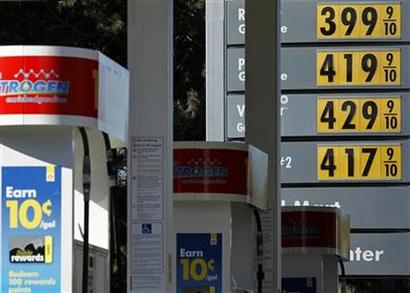Rising gas prices negatively impact Iona’s commuter students

The crisis in Libya has led to rising gas prices. The increasing prices are tough for Iona students, particularly commuters.
March 8, 2011
AAA Fuel Gauge reported that the price for a gallon of regular self-serve gasoline rose from $3.49 to $3.59. “The rise in gasoline prices is due to increasing crude oil prices as Middle East violence continues to make oil exports risky,” Gas Buddy Senior Petroleum Analyst Patrick DeHaan said in a Dayton Business Journal.
Assistant Professor of Political Science and International Studies Robert Lacey explained that some people would think that the political turmoil in Libya would not give major impact on oil and gas prices because Libya only produces about 2% of the world’s oil. The increase in price of oil is not a result of a decrease in oil supply, but a fear in the market.
“In the long term, the increasing demand for oil and gas in the developing world, particularly China and India, will be the driving force behind rising prices,” Lacey said.
Not only the professionals think that the increase of gas prices is caused by the violence in the Middle East, but also undergraduate students in Iona.
“Due the instability in that oil-producing nation, petro traders have racketed up the buying pressure, even though Libya produces such a limited percentage of the world’s oil,” senior Matthew Baker said. “The prices should not have risen as much as they have since a shortage in the supply of oil in the amount that Libya produces would not serve to push up the price, especially since the gasoline reserves in the US in January were the highest they have been since last winter.”
Regardless of the cause of the increased gas prices, students at Iona, particularly commuters, are concerned and frustrated with the higher prices, and are looking for ways to cut down on gas usage.
“Granted I might drive less on the weekend, but my weekly schedule won’t change as I already keep myself to about two trips a day,” senior Joseph Madonna said. “I will, however, be much more conscious of my speed on the highway, and try to stay closer to the speed limit so I don’t needlessly burn gas.”
While commuters take the biggest hit, the rising gas prices can have an indirect effect on resident students as well. “I think residents will feel the effect in an indirect way, but an effect nevertheless. Many local businesses that offer delivery service in the area will be paying more out of pocket, which means residents will have to pay more for that pizza delivery,” junior student Annmarie Stepancic stated. “At close to $3.75 a gallon in New Rochelle and surrounding cities, everyone is feeling the pinch.”
“With gas prices continuously rising, I will definitely be limiting my driving and considering alternatives,” sophomore Stephany Chavez said.
Other students do not plan on changing their lifestyles. “While I’m upset that gas prices are increasing, there’s nothing I’m going to do to significantly alter my routine,” Madonna said.
In the future, perhaps more people will choose hybrid car because of their fuel efficiency. Buying a hybrid car can only alleviate the expense burden in the short term because if the prices keep increasing, there is no way for anyone to escape from the burden of high prices. Some students believe that schools should come up with some ideas to lessen students’ burden.
For now, however, it seems that all students can do is try to alter their routines to drive only when absolutely necessary and to hope for the best in the Middle East.






